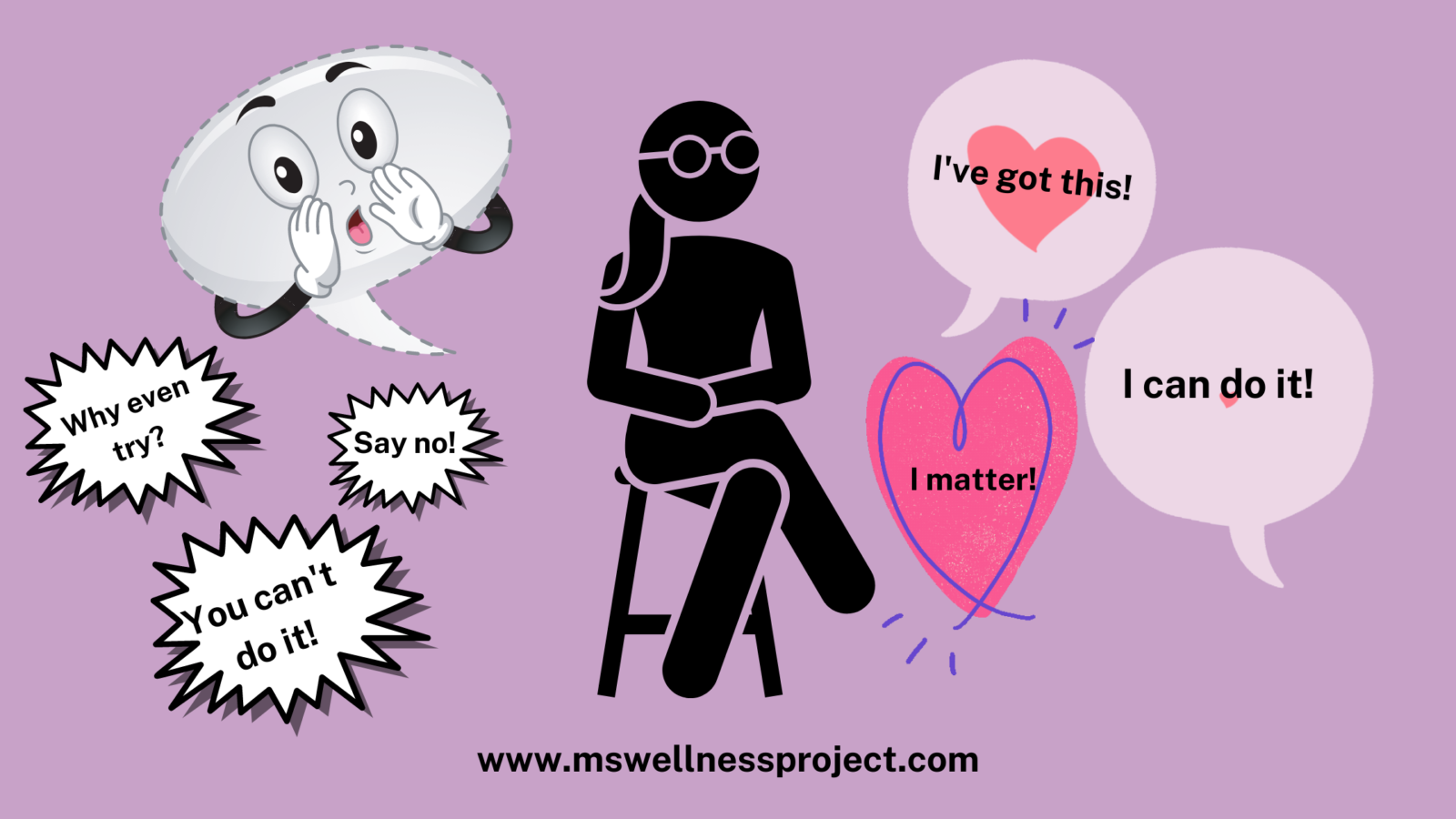When living with chronic illness is hard to banish self-doubt and find ways to boost self-confidence. This is especially true when you have the self-doubt gremlin sitting on your shoulder whispering negative thoughts into your ears. You know what I mean. The unwelcome thoughts that pop into your head and leave you unsure and doubting yourself.
It’s the not so silent inner critic telling us we won’t accomplish something or that we might fail, so why bother to try? These thoughts cause uncertainty making us feel that we are not good enough, strong enough, healthy enough or just, enough. Basically, it’s all the unkind ways that we talk to ourselves and chip away at our self-confidence.
Don’t be so hard on yourself
Most people are hardest on themselves and don’t cut themselves the same slack they would for a stranger. We talk to ourselves in ways we would never talk to a friend. This undermines the positive feelings we have for ourselves and can contribute to destroying self-esteem.
Low self-esteem is associated with internalizing negative perceptions of certain conditions and perceiving illness as a poor reflection of self. This can lead to obstacles for effective coping and self-management.1 It can also foster feelings of self-blame.
I have MS but it doesn’t have me, except it kind of does
I’m very aware that I am not my chronic illness and that it does not define me, but the truth is, it kind of runs my life.
I can’t make a move without thinking about how my symptoms or, God forbid, a flare, may disrupt my day and impact the people around me. I’d like to say I don’t let it guide my actions but that’s just not true. How can it not? Even when I think I’m making good choices the little voice in my head is always there, quietly whispering, fanning the flames of self-doubt.
It’s hard to have a positive sense of self when your body regularly betrays you and your life is dictated by your day-to-day health.
How chronic illness affects self-confidence
Everyone experiences self-doubt from time to time, especially when faced with new or challenging situations. But the fact is, those of us living with chronic illness tend to judge ourselves based on who we were before becoming ill, and who we think we have become.
There is a lot of attachment to the vision of the life we assumed we’d have prior to diagnosis and the thought of adjusting expectations and possibly settling for a future where we don’t reach our goals or meet our own expectations can be soul-crushing.
Banish self-doubt by letting go of preconceived notions and embracing who you are right now
Release yourself of the emotional burden of comparing your life to who you used to be. Everyone and everything changes. Change forces a person to learn to adapt to new circumstances promoting personal growth.
If you hold on to the old you, everything before diagnosis will be used as a litmus test to measure the worth of anything you do after that. This devalues you as a person, undermines the success of potential achievements, and keeps you stuck in a spiral of self-doubt.
Examples of harmful actions and negative self-talk:
- Self-sabotage
- Comparison
- Self-guessing decisions
- Talking down to yourself
- Doubting yourself
- Blaming yourself
- Putting yourself last
Instead of holding on to the old you, reach for the person you have yet to become.
How to banish self-doubt and boost self-confidence
- Practice positive self-talk that reflects personal strengths and accomplishments.
- Accept yourself for who you are
- Cultivate a Positive Mindset
- Utilize positive affirmations and daily mantras
- Focus on what you can control
- Build personal resilience
- Reframe negative thoughts with positive outcomes
- Implement self-care
- Journal
- Find your inner strength
TAKEAWAY
Having negative thoughts doesn’t make you a negative person. Even positive people have negative thoughts. The trick is to acknowledge any self-defeating talk, figure out where it’s coming from and find a way to work through these feelings. Focus on what you can do to nourish thoughts of self-kindness and boost self-esteem.
People place a lot of value on their abilities and capabilities rather than appreciating personal strengths and accomplishments. How we think about these things becomes the basis of how we perceive our own worthiness.
We have the power to control our thoughts and we can practice methods to boost self-confidence and banish the self-doubt gremlin. Nobody is perfect and you don’t need to be either.
If you found this article helpful, please Like, and Share.
Click here to subscribe for new monthly posts, exclusive content, and life hacks to live better with MS.
